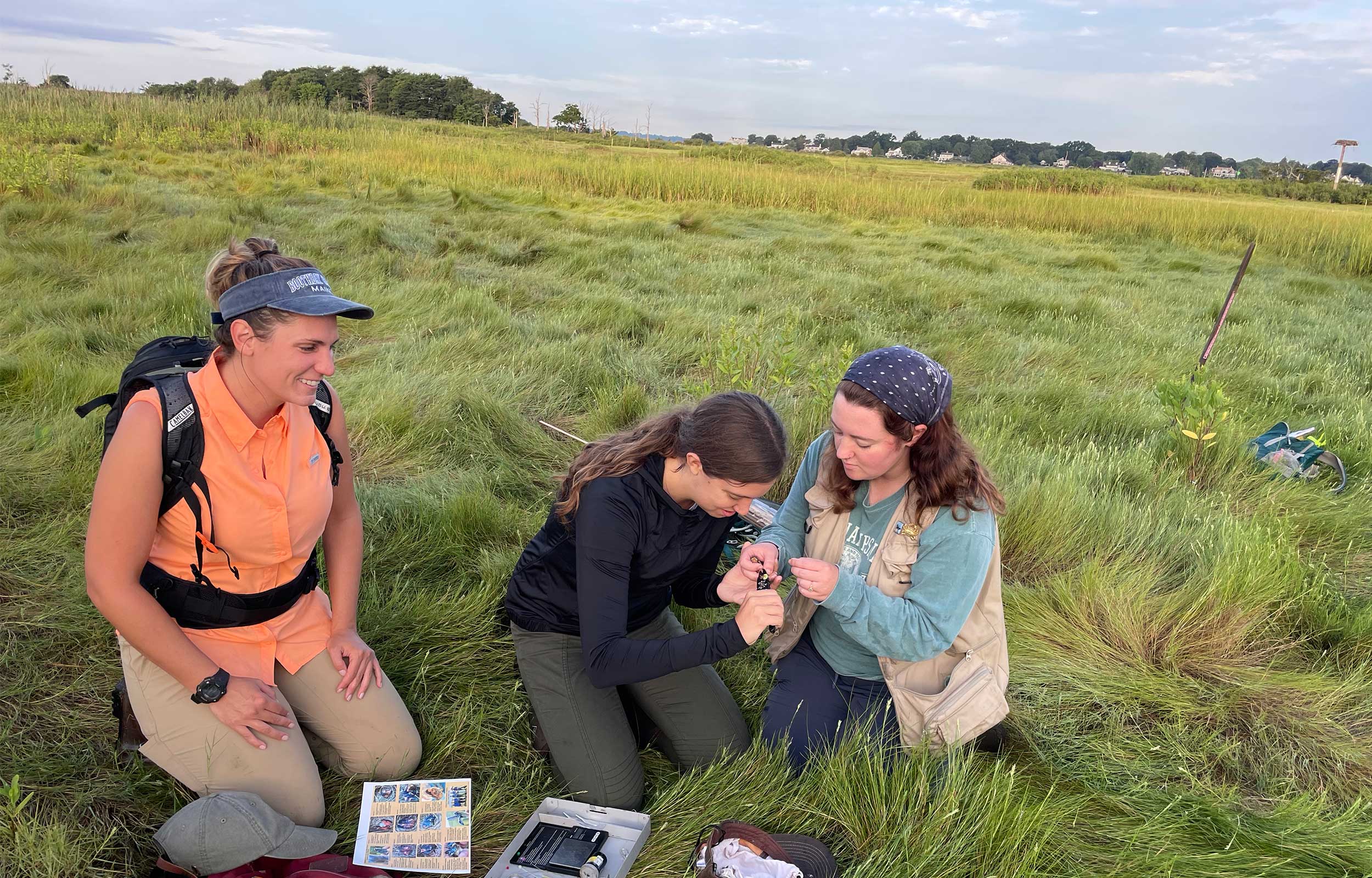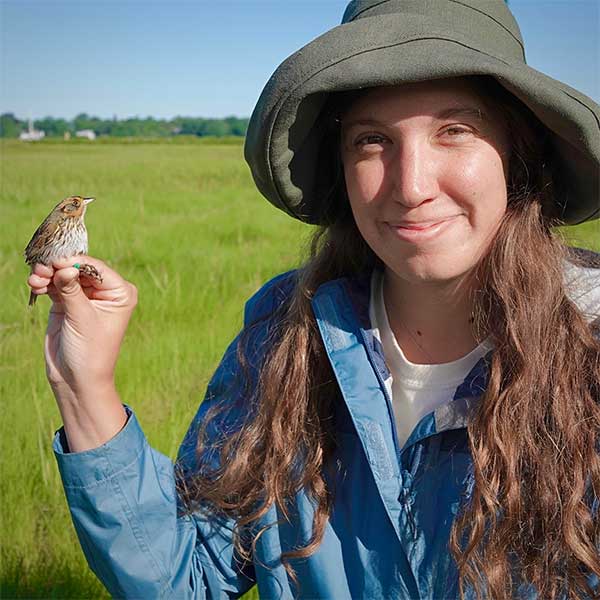
Jessica Szpila ’23 spent her summer in a beautiful spot, studying the nesting success of the saltmarsh sparrow, an endangered bird expected to go extinct by 2050 due to rising seas flooding its nesting habitat.
It was the first research fieldwork experience for Szpila, a major in wildlife and conservation biology and biological sciences. She spent her days looking for nests, monitoring the eggs, banding the birds, assessing nearby vegetation, and documenting chick survival.
“Our goal is to collect as much data as we can and get as deep an understanding of this bird as possible,” Szpila said. “It’s a small endangered songbird that only lives on the East Coast, and its population is decreasing at about 9 percent annually. We’re studying their nesting ecology. Mainly, we’re looking at the variables to nesting success or failure in the marsh.”
Szpila’s research was supported by the URI Coastal and Environmental Fellows Program, a unique initiative designed to involve undergraduate students in addressing current environmental problems. Now in its 25th year, the program pairs students with a mentor and research staff to help them gain skills relevant to their academic major and future occupations. Coastal Fellows’ research projects cover a broad spectrum—from sustainable seafood production and habitat use by mako sharks to rabbit genetics and salt marsh soils.
“My mentors are inspiring, they care so much about this species, and they’re doing everything they can to help the birds in any way they can,” Szpila said. “I’ve fed off of that. Being in that environment has lifted me up.
“Being on the salt marsh every morning was quite beautiful,” Szpila said. “And there were lots of other beautiful birds out there. It was an amazing opportunity to learn to collect large bodies of data in the field and analyze them at home on the computer. I learned so much about working with a small team on a big project, which meant that I had a lot more responsibility than ever before.”
As she completes her Coastal Fellows research project this fall, Szpila is already looking ahead to next year, when she will pursue a senior thesis project on the saltmarsh sparrows and whether the females choose a nesting location higher in the marsh after seeing their first nest become flooded. Eventually she plans to earn a doctorate to continue studying birds.
—Todd McLeish

